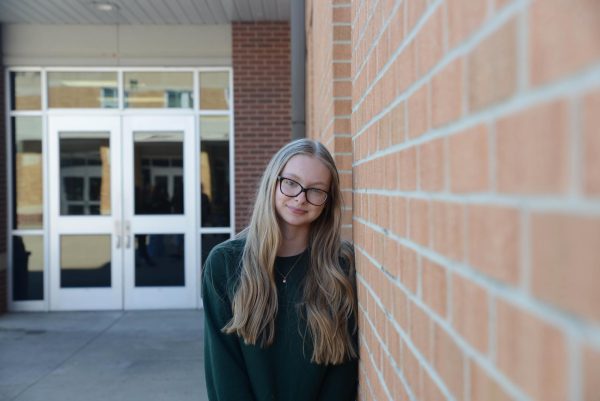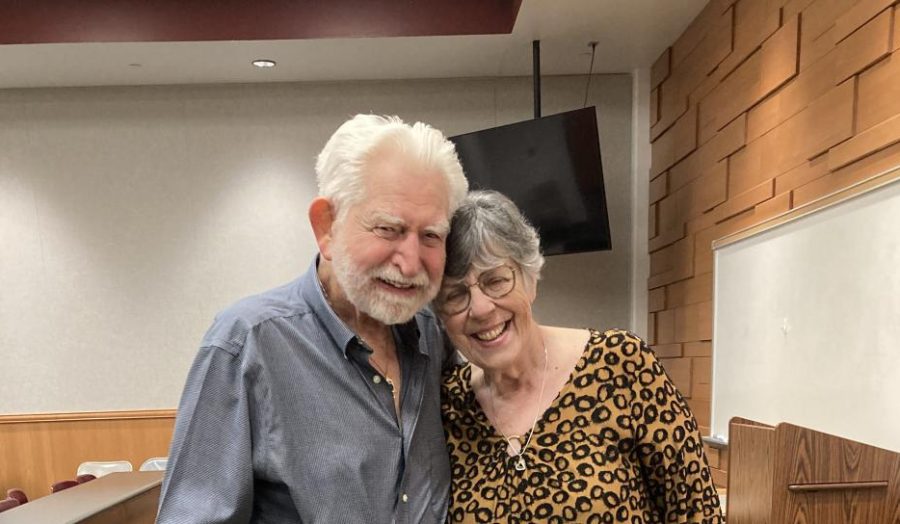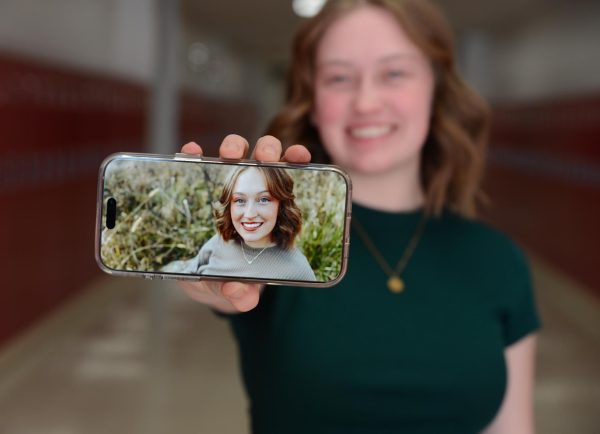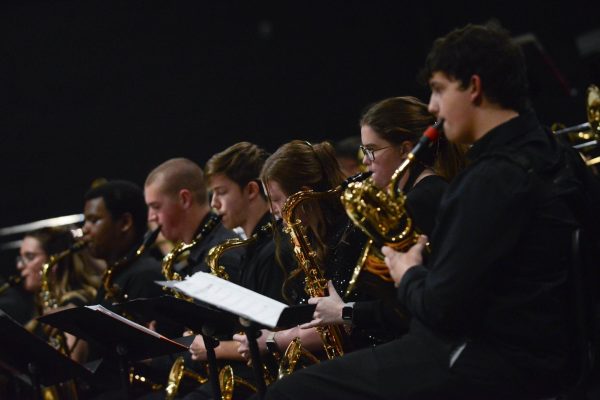Holocaust survivor brings history to RHS
Erika Schwartz was only a baby when the Nazis took over her town Nyiregyhaza, Hungary. On Sept. 21, Rolla High School was lucky enough to welcome Schwartz, a survivor, to share her family’s legacy and advice with history students.
In 1938, the Hungarian government passed laws restricting Jewish participation in ordinary day-to-day life. At that time, Nyíregyháza had about 5,000 Jewish occupants, but by 1944, more than 4,700 of them were imprisoned in concentration or labor camps, including Schwartz’s father, Herman Hornstein, and many of her family members.
According to Schwartz, her life was uprooted due to the extreme messaging that invaded German people’s thoughts.
“Through propaganda and lies, the people were desensitized from seeing Jews as human,” said Schwartz.
Schwartz believes there are similarities between the media’s behavior today and the way the media influenced the discrimination that took place during the Holocaust.
“There’s so much polarization in the United States today. The messages that are being given out by the media and by politicians are tearing people apart. That is the way the Holocaust started; by demonizing whole groups of people for no other reason than that they are a group of people,” said Schwartz.
Although she only lived through a year of the Holocaust, Schwartz spent half of her life reaping the damage it caused.
“For the first 44 years of my life, I was depressed. I was resentful. The only thing that I felt about my life was what I didn’t have. I was obsessed with growing up without a father, without grandparents, and I had absolutely no concept that I could feel any other way,” stated Schwartz.
This, however, was not the end of Schwartz’s story.
“I had this moment when I realized that I’m one of the only survivors. I may very well be one of the last people who can tell the story and I need to tell it, and that’s why I chose to start speaking. And it’s been a very, very fulfilling story,” said Schwartz.
Social Studies teacher Amanda Jarrett also believes it’s important for students to hear from survivors first-hand.
“Unfortunately, the survivors are dying. We don’t have many left and those of us who study it, we can teach it. We can tell you what it’s about, but to actually hear from a survivor, I think it really just brings it home and it helps students realize that these were people. That it really happened to human beings who were at one point in time just like us,” said Jarrett.
Schwartz is able to connect to every age group, which is what makes her influence so powerful.
Senior Dylan Brown said, “I liked what she said:… to just live life and not care what other people think because she said she lived for 44 years just being kind of hateful. And then the rest of her life, she’s much happier not doing that.”
According to Brown, many other students are encouraged by Schwartz.
“Most of my other classmates who were in there talked about it and said that they enjoyed the experience, so I think she left an impact on them as well,” noted Brown.
To Schwartz, the most important thing for students to understand about the Holocaust is what caused it.
“Because of the environment today, I think the most important thing that you can learn about the Holocaust is how it started because the environment was very similar to what we’re seeing today from the media and politicians. So I think if kids can study how the Holocaust started and what was going on in Nazi Germany in terms of the message that was being given out, then they can prevent it from happening again,” said Schwartz.

Bonjour! I’m Olivia!! This is my second year on ECHO staff, and my first year as the news editor. Outside of school, I am the 24-25 Sowers Intern for...








